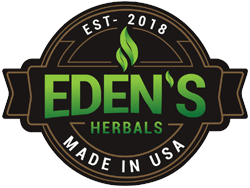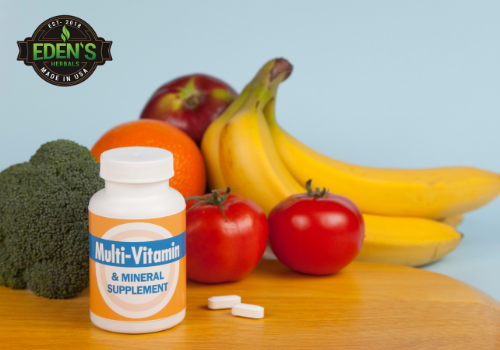Keeping your body healthy and strong can be a real challenge, particularly during a pandemic.
If you've been feeling isolated and housebound, exercise and eating healthy can be difficult. To make sure that your body is getting the nutrients it needs, a daily multi-vitamin is more important than ever.
1. Dietary Challenges
We all have unique tastes and diets. This isn't a bad thing, but it can make it difficult to get all of the nutrients our body needs for maximum energy.
If you have a problem tolerating dairy products, it can be hard to get enough calcium and magnesium. For those who can't eat wheat, getting the necessary whole grains in your daily intake can be a problem.
Eating a wide variety of fruits and vegetables is an excellent way to work towards getting the nutrients you need. But those with food allergies and food intolerance problems will definitely want to consider a multivitamin.
2. Protecting Your Eyesight and Preventing Cancer Recurrence
The Physician's Health Study II, done by Harvard University over several years, followed participants who took either a multivitamin or a placebo each day.
While the study has limitations, including the fact that only men were included, there is a strong indication that a daily multivitamin reduces the risk of cataract development. For those with a history of cancer, a daily multi-vitamin appears to offer a prevention of cancer recurrence.
As this study focused on men's health, it's important to consider the best multivitamin for prostate health. While a diet high in fruits and vegetables, particularly tomatoes and broccoli, are a critical first step in protecting the prostate, a multi-vitamin with a full dose of Vitamin D is also strongly recommended.
 3. Specific Deficiencies
3. Specific Deficiencies
While many multi-vitamins on the market claim to boost metabolism, experts recommend that your multi-vitamin choice should address deficiencies specific to your health. Supplements can become problematic if you take additional supplements on top of a multi-vitamin that already offers 100% of your recommended daily allowance of nutrients.
An iron supplement is likely necessary if you have an iron deficiency, but too much can be very hard on your stomach. Excessive Vitamin A and E are both toxic if taken long-term.
Not every supplement is healthy for every person, so make sure you discuss your supplement plans with your physician to avoid putting yourself at risk.
4. Supplements for Aging
Older adults often struggle to absorb nutrients from their food as well as their daily multi-vitamin, so increasing the exposure can provide better protection.
Experts across the board recommend getting as many nutrients as possible from the foods we eat. A daily multi-vitamin should only be used as a supplement to that food. Filling in with a multi-vitamin is appropriate; relying on it for primary nutrients is not.
 5. Children's Vitamins
5. Children's Vitamins
For children, experts strongly recommend that parents try to get their children to eat enough variety that a daily multi-vitamin is not necessary. However, if your child is a picky eater or if they have food allergies or sensitivities, a multi-vitamin may be needed.
Parents need to keep children's vitamins locked up and away. Make this daytime ritual a very specific habit. Children's vitamins are often flavored, friendly and fun, but it is possible to overdose on the contents of children's vitamins, particularly iron.
6. Vitamins for Women
Women of child-bearing age are strongly encouraged to get in the vitamin habit. A pre-natal and natal vitamin routine to increase your folic acid intake are also critical to a growing fetus. Folate is also shown to be effective in managing stress and depression. If your mind and spirit could also use a supplement, get your folate levels checked.
As women age, it's recommended to find a multi-vitamin that includes the following;
Vitamin D
Phosphorus
Calcium
Magnesium
 A multivitamin is a wonderful supplement to a healthy diet, physical activity, and sunlight absorption.
A multivitamin is a wonderful supplement to a healthy diet, physical activity, and sunlight absorption.
As noted above, a daily multi-vitamin can't be a replacement for food. If older folks aren't doing weight bearing exercise, all the calcium in the world can't help fight osteoporosis.
However, a daily multi-vitamin formulated for your age and stage of life can be considered an effective insurance policy.
Like any insurance policy, you will want to put other habits and actions in place to avoid over relying on it. As you try to drive safely and avoid hazards at home, work hard to eat a diet high in whole grains, fresh fruits, vegetables, and lean proteins.
7. Focus on the Right Nutrients
As an insurance policy, you can choose a multi-vitamin that's actually quite simple. It's strongly recommended that you find a multi-vitamin that focuses on the following;
Vitamin D, but make sure you get some sun as well
Magnesium, and be sure you eat some spinach
Calcium, and include yogurt or lentils in your diet
Zinc, but be sure to eat brown rice instead of white
Iron, and enjoy some hummus as chickpeas are high in iron
Folate, and enjoy some avocado toast
Vitamin B-12, particularly if you are vegan
 Your body needs the right vitamins and minerals for energy production. A multivitamin can have a long list of benefits for everything from the immune system, to the aging process, to bone health.
Your body needs the right vitamins and minerals for energy production. A multivitamin can have a long list of benefits for everything from the immune system, to the aging process, to bone health.
Your body can only absorb so many nutrients. Most excess will simply be filtered out, but there are some nutrients in your multi-vitamin that can be dangerous to your health if you take too much.
Discuss your plans with your physician for qualified medical advice, to make sure your diet is as healthy as possible before filling in with a daily multi-vitamin.



